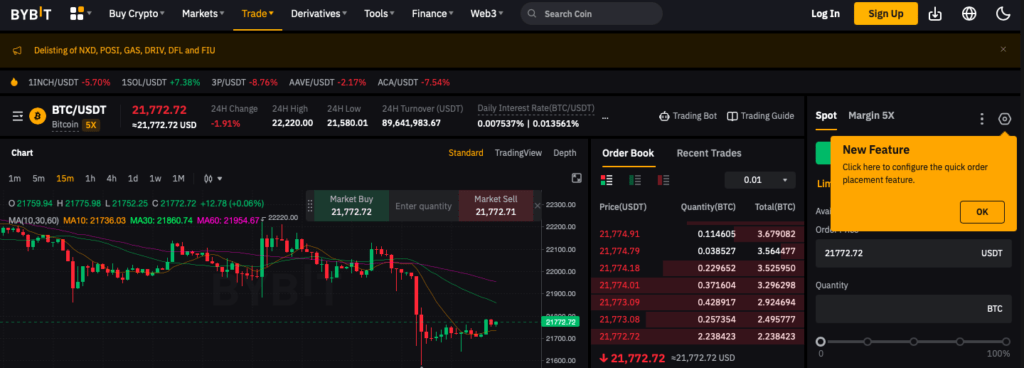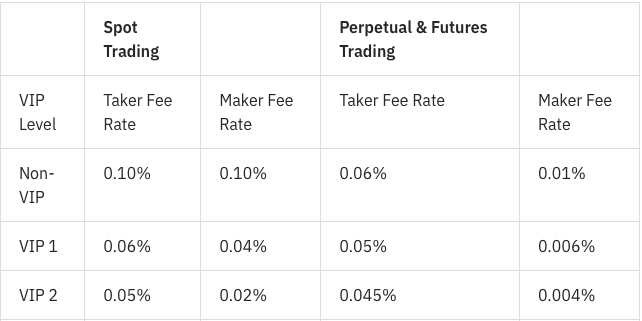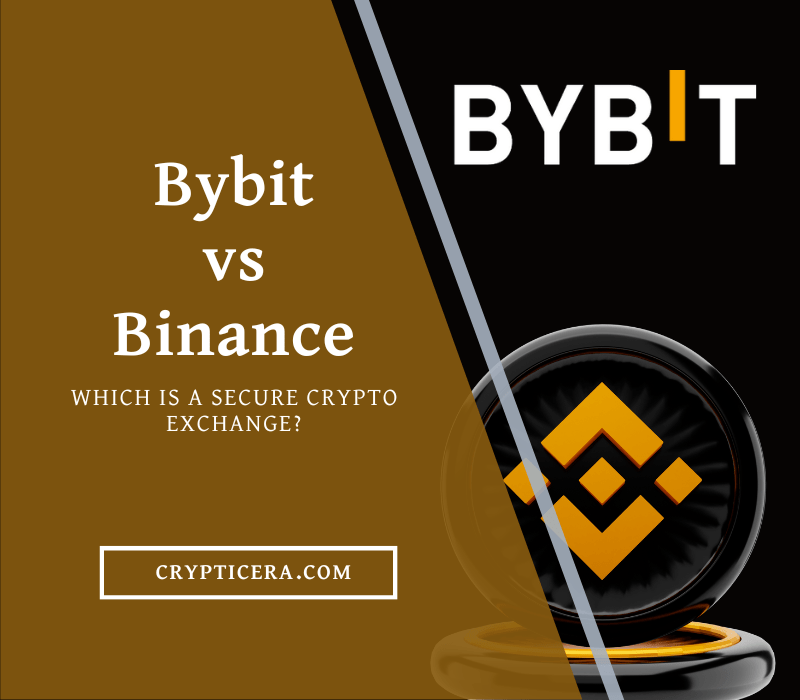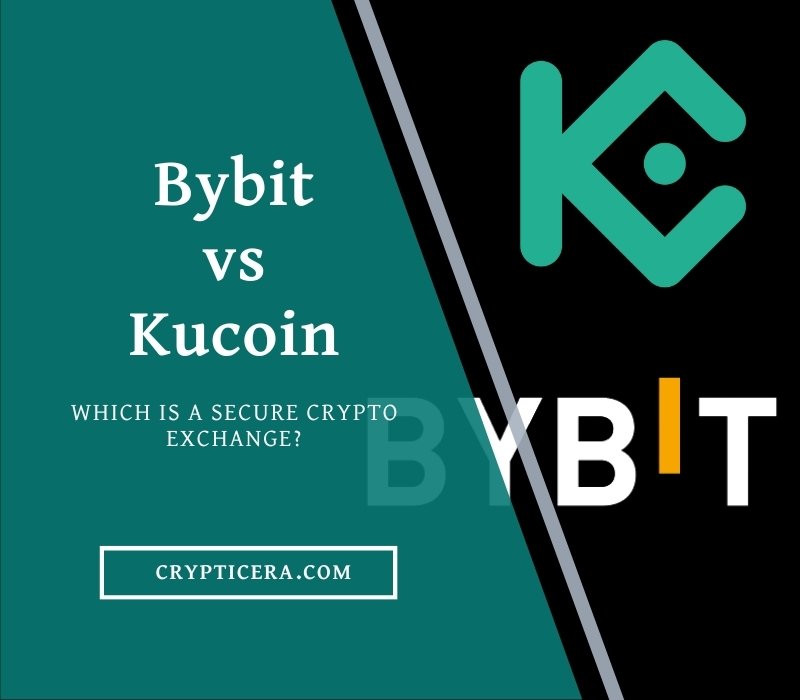Cryptocurrency trading has been growing in popularity over the past few years, with many platforms offering users the ability to trade digital assets.
Two of the most popular platforms for trading cryptocurrency are Phemex and Bybit. Both platforms offer a range of features and benefits, making them attractive options for traders.
In this blog post, we will take a closer look at Phemex vs Bybit, comparing their key features, fees, and overall user experience.
Summary: Bybit cryptocurrency Exchange is better than Phemex due to its high trading volume, high Liquidity, and advanced platform features such as DEXs, wallets, NFT Marketplaces, lending, and borrowing.
Phemex and Bybit: Similarities and Differences

- Trading Platform Features: Spot and Futures, Margin Trading, Leveraged Token, copy trading, staking, NFTs, DEXs, Loans
- Trading Fees: 0.1% spot, 0.01-0.06 Perpetual contracts
- Number of cryptocurrencies supported: 359+
- Fiat Supported: USD, EUR, GBP, and +3 more
- Payment methods: credit/debit card, Bank transfers, crypto
- Solvent: $3.09 billion in reserve assets
Pros
- Offers a range of trading products
- User-friendly interface and analytical tools
- High liquidity
- Strong security measures
Cons
- Not Available in the US
- Regulator issues in past
- Accused of market manipulation
- Trading Platform Features: Spot, Margin Trading, Perpetual contracts, Earn and savings, P2P Trading
- Trading Fees: 0.05 – 0.1% spot, 0.06% futures
- Number of cryptocurrencies supported: 213
- Fiat Supported: –
- Payment Methods: SWIFT, ACH, SEPA, Moonpay, simplex, etc.
- Solvent: $107 million in reserve assets
Pros
- High-leverage trading is available
- User-friendly interface
- Low trading fees
- The fast and efficient trading engine
- No KYC required for spot trading
Cons
- Limited Fiat support
- A limited selection of cryptocurrencies
- Relatively new exchange
Bybit Overview

Bybit is a Singapore-based cryptocurrency derivatives exchange founded in 2018. It offers perpetual swaps and futures contracts for cryptocurrencies, allowing users to trade with leverage of up to 100x.
Bybit has a user-friendly interface, mobile app, and various trading tools and indicators. It also offers a demo mode for users to practice trading without risking real funds.
Its fees are low, and it uses a maker-taker fee model. Security is a top priority, with cold storage, 2FA, anti-phishing codes, and regular security audits.
The platform has faced regulatory challenges in certain countries including the US but continues to operate in many others. It has expanded its offerings to include spot trading and other features.
Phemex Overview

Phemex is a cryptocurrency derivatives trading platform established in 2019. It offers perpetual contracts for cryptocurrencies with up to 100x leverage, advanced charting, and order types.
The Exchange has a “zero-fee” trading model, instead of charging a monthly subscription fee for premium features. It uses advanced security measures and provides educational resources, including a demo trading platform.
Phemex is user-friendly, supports multiple languages, and has a mobile app. It is a reliable and secure platform committed to providing a top-notch trading experience for both beginners and experienced traders.
Comparison between Phemex and Bybit Exchanges
| Key Points | Phemex | Bybit |
|---|---|---|
| Supported Cryptocurrencies | BTC, ETH, XRP, LTC, DOT, ADA, LINK, and 350+ more | BTC, ETH, EOS, XRP, USDT, LINK, ADA, and 200+ more |
| Trading Fees | 0.10% | 0.075% – 0.1% |
| Contract Types | Perpetual Contracts | Perpetual Contracts, Futures Contracts |
| Leverage Available | Up to 100x | Up to 100x |
| Deposit Methods | SWIFT, ACH, SEPA, Moonpay, simplex, etc. | Credit/Debit card, Bank transfers, crypto |
| Trading Interface | User-friendly | User-friendly |
| Mobile App | Yes | Yes |
| Customer Support | 24/7 | 24/7 |
| Trading Tools | P2P, Perpetual contracts, Spot, Copy Trade | P2P, Perpetual contracts, Spot, Copy Trade, Trading bots, DEXs, NFT Marketplace, Defi wallet |
| Margin trading | Yes | Yes |
| KYC Requirements | Optional | Mandatory |
| Referral Program | Yes | Yes |
| Insurance Fund | – | Yes |
| Trading Volume | Average | Very High |
| Review | Phemex Review | Bybit Review |
Phemex vs Bybit: Supported Cryptocurrencies
Bybit support 359 cryptocurrencies and 500+ trading whereas, Phemex supports only 219 digital assets and 300+ trading pairs. Some popular cryptocurrencies supported on both platforms are:
- Bitcoin (BTC)
- Ethereum (ETH)
- Chainlink (LINK)
- Litecoin (LTC)
- XRP (XRP)
- Tezos (XTZ)
- Uniswap (UNI)
- Yearn.finance (YFI)
- SushiSwap (SUSHI)
- Polkadot (DOT)
- Stellar (XLM)
- Cardano (ADA)
Winner: Bybit has more trading pairs and high-volume markets than phemex.
Phemex vs Bybit: Trading Platform Features

1. Leverage Trading
Both Phemex and Bybit offer high-leverage options for traders, up to 100x. However, Bybit offers both perpetual and Future contracts with high liquidity and volume. phemex only supports perpetual contracts and has low volume in some altcoin pairs.
2. Margin Trading
Both platforms allow traders to use margins of up to 5X to increase their trading position sizes. However, Bybit offers cross-margin and isolated-margin trading options, while Phemex only offers isolated-margin trading.
3. Copy Trading and P2P Trading
Both platforms offer peer-to-peer (P2P) trading options, allowing users to buy and sell cryptocurrencies directly with other users. However, Phemex only offers P2P trading for USDT, BTC, and ETH while Bybit offers P2P trading for multiple cryptocurrencies.
Both platforms offer copy trading, but they have a huge difference in traders’ success rates. Bybit has more copy traders ads with high success rates and backtesting their strategy.
4. Lending and borrowing
Bybit offers a peer-to-peer lending platform called Bybit Earn, which allows users to lend out their cryptocurrency holdings and earn interest. Bybit also offers crypto loans where users can borrow funds to trade with leverage. Phemex does not allow lending and borrowing due to regulations.
Winner: Bybit offers more features and high Liquidity trading compared to Phemex.
Phemex vs Bybit: Fees
Phemex Fees

- Spot Trading: Phemex charges a flat trading fee of 0.10% for both takers and makers for spot trading.
- Perpetual and Futures Trading: For perpetual and futures trading, Phemex charges a tiered fee structure based on a trader’s VIP level and trading volume. For non-VIP traders, the taker fee rate is 0.06%, and the maker fee rate is also 0.01%. As traders move up the VIP levels, the fees decrease. For example, for traders with a trading volume of more than 1 million USD and a VIP level of 1, the taker fee rate is 0.055%, and the maker fee rate is 0.006%.
- Funding fees: Phemex charges funding fees every 24 hours for open positions on perpetual contracts. The funding rate is based on the prevailing market rate and is either paid or received by traders depending on their position and the funding rate.
Bybit Fees

- Spot Trading: Bybit charges a flat 0.01% for both makers and takers on its spot trading platform.
- Perpetual and Futures Trading: Bybit charges a tiered fee structure based on a trader’s VIP level and trading volume. For non-VIP traders, the taker fee rate is 0.060%, and the maker fee rate is also 0.01%.
- Funding fees: Bybit charges overnight funding fees every 24 hours for open positions on futures contracts.
Fees Compared
| Spot Trading | Perpetual & Futures Trading | |||
| Taker Fee Rate | Maker Fee Rate | Taker Fee Rate | Maker Fee Rate | |
| Bybit | 0.10% | 0.10% | 0.06% | 0.01% |
| Phemex | 0.10% | 0.10% | 0.06% | 0.01% |
Winner: Both Exchanges charge exactly similar fees for new and non-VIP Users.
Deposit and Withdrawal Fees
Bybit and Phemex do not charge any deposit fees, but withdrawal fees vary depending on the cryptocurrency being withdrawn. For example, Bitcoin withdrawals incur a fee of 0.0005 BTC, while Ethereum withdrawals incur a fee of 0.01 ETH. These fees are subject to change depending on network congestion and other factors.
Phemex vs Bybit: Security
Phemex and Bybit are both cryptocurrency exchanges that prioritize security. Here is a comparison of their security measures:
- Account Security: Both Phemex and Bybit offer two-factor authentication (2FA) for user accounts, which adds an extra layer of protection to prevent unauthorized access.
- Asset Protection: Both exchanges use a multi-signature cold wallet storage system to protect users’ funds. This means that the majority of users’ assets are stored offline in cold wallets, which reduces the risk of hacking.
- System Security: Both exchanges employ strict security protocols to protect their systems from cyberattacks, including regular security audits, system monitoring, and emergency response plans.
- Insurance Coverage: Bybit offers an insurance fund that can cover losses due to unexpected market volatility or system failures, while Phemex does not provide such coverage.
It’s worth noting that both Phemex and Bybit have not experienced any major security breaches to date, which indicates the effectiveness of their security measures. Additionally, both exchanges have implemented measures to protect against phishing attacks, such as email verification and anti-phishing codes.
Winner: (Tie) Both offer robust security measures to protect user assets.
Phemex vs Bybit: Payment Methods
Both platforms offer a range of payment methods to fund user accounts, including credit/debit cards, bank transfers, and various cryptocurrencies.
Phemex and Bybit support Visa, Mastercard, and bank transfers in various currencies, including USD, EUR, GBP, and CNY.
Both support deposits and withdrawals in Bitcoin, Ethereum, and other cryptocurrencies. Phemex charges a 2.5% fee for credit/debit card deposits and no fees for bank transfers. Bybit does not charge any deposit fees, regardless of the payment method used.
Phemex also allows deposits from many third parties including Simplex, Mercuryo, Banxa, and Moonpay. Bank transfers supported by phemex are ACH, SWIFT, SEPA, and FPS.
Winner: Phemex offers more third-party payment methods for Deposits than Bybit.
Is Phemex or Bybit Available in the US?
Both Bybit and Phemex are global trading platforms that offer their services to customers across many countries. However, there are some countries where they cannot provide their services due to legal restrictions.
Bybit is unavailable to customers in countries like the U.S, Singapore, Cuba, Crimea, Sevastopol, Iran, Syria, North Korea, Sudan, and Mainland China.
On the other hand, Phemex has more than 5 million active users in over 200 countries but its services are not available to customers in the United States, United Kingdom, Quebec and Alberta (Canada), Cuba, Crimea, and many more.
Customer Support Comparison
Phemex and Bybit both offer 24/7 customer support via their online chat function, which can be accessed from the bottom right-hand corner of their website. They also have a dedicated email address for support inquiries, as well as a help center with articles and tutorials to assist users.
Both platforms are generally quick to respond to customer inquiries, with wait times typically ranging from a few minutes to a few hours. However, during periods of high traffic or technical issues, response times may be delayed.
Related:
- How does Bybit Trading Bots Work
- How Does Bybit Copy Trading Work
- Bybit Vs Kucoin
- Bybit vs Binance
- Coinbase Vs Bybit Vs Kraken Vs Crypto.com
- Best fiat-to-crypto Exchanges
How to Open an Account with Phemex or Bybit?

To open an account with Phemex and Bybit, you can follow these general steps:
- Go to the Phemex or bybit website.
- Click on “Register” in the top right-hand corner of the page.
- Enter your email address, create a password, and confirm your password.
- Agree to the terms of service and click “Register.”
- Verify your email address by clicking on the link sent to your email.
Note: Phemex does not require KYC For basic trading, whereas Bybit KYC is mandatory.
Final Thoughts: Which should you choose?
Phemex and Bybit are both highly regarded cryptocurrency exchanges that share many similarities. They have comparable fee structures, security measures, and customer support services.
However, Bybit holds a slight advantage in some aspects. Its platform is easier to use, especially for professional traders, and it boasts higher trading volume, ensuring liquidity.
Additionally, Bybit offers a more intuitive trading platform compared to Phemex.


